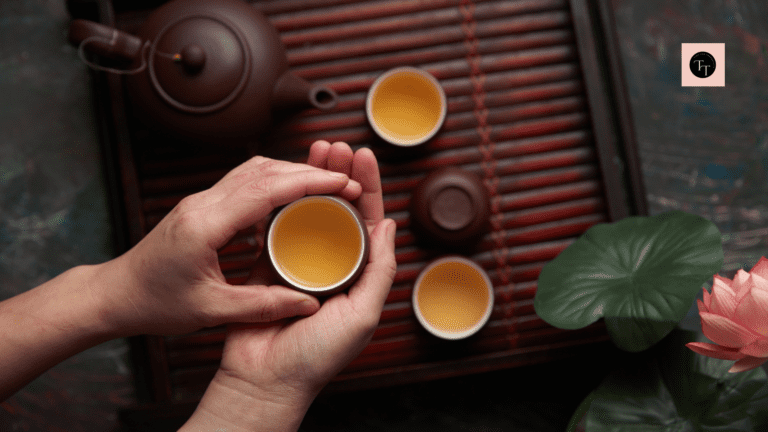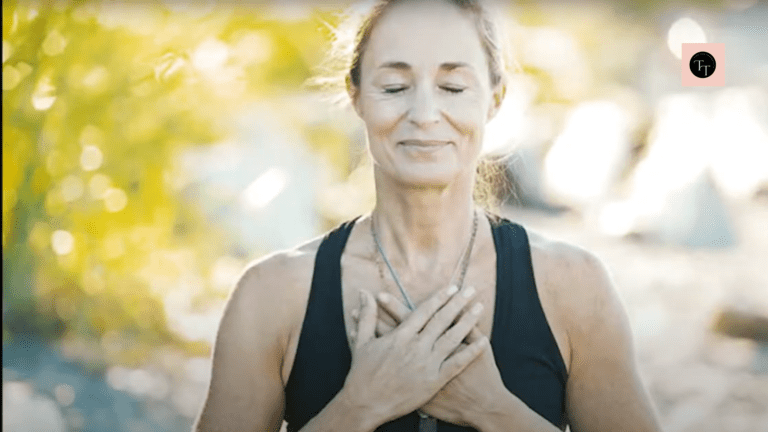15 Best Ways Seniors Can Use Mindfulness for Anxiety Reduction!
Many women in their golden years face challenges, such as living alone and struggling with anxiety. Fortunately, the practice of mindfulness for anxiety reduction is an excellent solution.
I know what it’s like to feel anxious and live alone. I faced this situation during the pandemic. Instead of giving up, I chose to embark on a self-discovery adventure. For two years, I traveled to countries like India, Nepal, Thailand, and Japan to explore ancient wisdom in search of personal growth.
I visited several ashrams and temples to study self-awareness, mindfulness, meditation, and yoga. I have found that practicing mindfulness for anxiety reduction is the simplest and the most effective.
Of course, mindfulness benefits us in numerous ways, in addition to lowering stress and anxiety. I am convinced that mindfulness is the silver bullet to most of our problems in life.
I have found inner peace and the mental strength to cope with difficult emotions through the practice of mindfulness.
In this article, I explain mindfulness and anxiety. Overwhelming anxiety can make your life a living hell, but the practice of mindfulness can mitigate anxiety to a great degree. How? Read on as I share practical ways to reduce high anxiety levels through mindfulness.
What is Mindfulness?
Mindfulness means being fully present in the moment. It’s about paying attention to what you are doing, what you are feeling, and what you are thinking, without passing any judgment.
When you practice mindfulness, you focus on the here and now, rather than worrying about the past or future. This simple act can bring peace and clarity to your mind.
Why is Mindfulness Important?
Mindfulness is essential for daily life. It helps reduce stress and anxiety by allowing you to step back from overwhelming thoughts.
The practice of mindfulness is known, to improve mood and foster feelings of joy, peace, and happiness. Simple activities, like sipping tea or watching a sunset can bring contentment to your life.
Mindfulness encourages gratitude and helps you connect with yourself and others more deeply. Embracing mindfulness can lead to a happier, more fulfilling life, especially in your golden years.
“You have power over your mind—not outside events. Realize this, and you will find strength.” – Marcus Aurelius
Why is Mindfulness Especially Important for Seniors?
Mindfulness is especially important for seniors because it helps reduce stress, anxiety, and negative thinking by keeping the mind focused on the present moment. It promotes mental clarity, emotional balance, and a sense of peace.
By practicing mindfulness, seniors can better cope with age-related changes and enhance their overall well-being. This is what you can expect:
Better Physical Health
Believe it or not, research has shown that mindfulness is good for your physical health. It can lower blood pressure, reduce chronic pain, and improve sleep quality. By reducing stress, mindfulness supports overall well-being and vitality.
Improved Mental Health
Mindfulness is well known to reduce stress, anxiety, and depression. By focusing on the present moment, you can let go of worries about the past or future. Mindfulness helps calm your mind and brings a sense of inner peace, by keeping your thoughts and awareness grounded to the present moment.
Enhanced Cognitive Function
Practicing mindfulness can improve your memory and concentration. It helps keep your mind sharp and alert. This can lead to better decision-making and a more positive outlook on life.
Emotional Well-being
Mindfulness encourages gratitude, self-awareness, and self-compassion. It helps you understand and accept your emotions without judgment. This can lead to greater emotional stability and resilience. You can see the good things in life and develop more meaningful relationships.
What is Anxiety?
Anxiety is a normal human emotion that we all experience at times. It’s a feeling of worry, fear, or unease that can be mild or severe. Some common symptoms of anxiety include racing thoughts, rapid heartbeat, sweating, and muscle tension.
While a little anxiety can be helpful, such as when it motivates us to prepare for a test or event, persistent or excessive anxiety can negatively impact our daily lives.
Consistently high levels of anxiety can even lead to depression. Anxiety and depression are closely linked, and prolonged anxiety can overwhelm the brain’s coping mechanisms, eventually leading to depressive symptoms.
Scientific studies support this connection. Research shows that chronic anxiety can increase the risk of developing depression, as both conditions share common biological and psychological pathways.
How Anxiety Affects Seniors
As we grow older, we may face unique challenges that can trigger anxiety, such as health concerns, financial worries, or the loss of loved ones.
Anxiety in seniors can lead to social isolation, decreased quality of life, and even physical health problems. Ignoring anxiety can lead to a downward spiral of negative thoughts and behaviors.
Addressing anxiety early on through therapy, positive thinking, mindfulness, and other coping strategies can help reduce the risk of depression. Practicing mindfulness for anxiety reduction can improve your overall well-being. With the help of mindfulness practices, you can enjoy your golden years to the fullest.
“The secret of health for both mind and body is not to mourn for the past, worry about the future, or anticipate troubles, but to live in the present moment wisely and earnestly.” – Buddha
15 Mindfulness Techniques for Seniors to Reduce Anxiety
If anxiety makes life difficult, explore these 15 simple mindfulness techniques. They are designed to help seniors reduce anxiety, promote relaxation, and enhance overall daily well-being.
Morning Mindfulness Routine
- Mindful Awakening
Start your day with a few deep breaths, focusing on the present moment. This sets a calm tone for the day ahead. - Gratitude Journaling
Write down three things you’re grateful for each morning. This practice boosts positivity and shifts your mindset. - Mindful Morning Stretch
Engage in gentle stretching while paying attention to your body’s movements. This enhances flexibility and reduces tension. - Savoring Breakfast
Eat your breakfast slowly, savoring each bite. Mindful eating promotes better digestion and enjoyment of food.
Daytime Mindfulness Practices
- Nature Walk
Take a short walk outdoors, focusing on the sights and sounds around you. This connects you with nature and lifts your mood. It is also an opportunity to reflect on life calmly. - Breath Awareness
Spend a few minutes focusing on your breath during the day. This helps center your thoughts and reduce anxiety. Breath awareness is essentially mindfulness meditation which can be practiced anytime. - Mindful Listening
When talking with others, listen fully without interrupting. This deepens connections and enhances communication. - Mindful Chores
Turn daily tasks like washing dishes or folding laundry into mindful moments by focusing on the sensations.
Acute Anxiety Solutions
- Grounding Technique
When experiencing acute anxiety, engage your senses by looking around and describing what you see, hear, smell, and feel. This brings you back to the present moment. - Mantra Repetition
Silently repeat a calming word or phrase to yourself, such as “I am safe” or “This too shall pass.” Mantras can help interrupt anxious thoughts. Repeating “Om” in a slow deliberate manner is practiced in the Hindu tradition. Listening to the Tibetan Bowl Sound is also very calming. - Progressive Muscle Relaxation
Systematically tense and release muscle groups throughout your body, noticing the contrast between the two states. This promotes overall relaxation.
Evening Mindfulness Routine
- Guided Meditation
Set aside time for a short guided meditation session. This practice calms the mind and fosters inner peace. This is a good way to start. However, once you achieve a degree of proficiency, it is best to practice mindfulness meditation without any apps or guides. - Digital Detox
Spend an hour without screens in the evening, focusing on activities like reading or journaling to unwind and reflect. - Mindful Breathing Exercise
Practice box breathing or 4-7-8 breathing to regulate your breath and activate the parasympathetic nervous system for relaxation. - Bedtime Reflection
Before sleeping, reflect on your day with kindness, noting what went well. This promotes restful sleep and positive thoughts.
In Conclusion
By incorporating mindfulness practices into your daily life, you can effectively manage anxiety and cultivate a greater sense of peace and well-being in your golden years. Remember, the journey to serenity begins with a single mindful moment.
Start small, be patient with yourself, and trust in the power of the present moment to transform your life.






